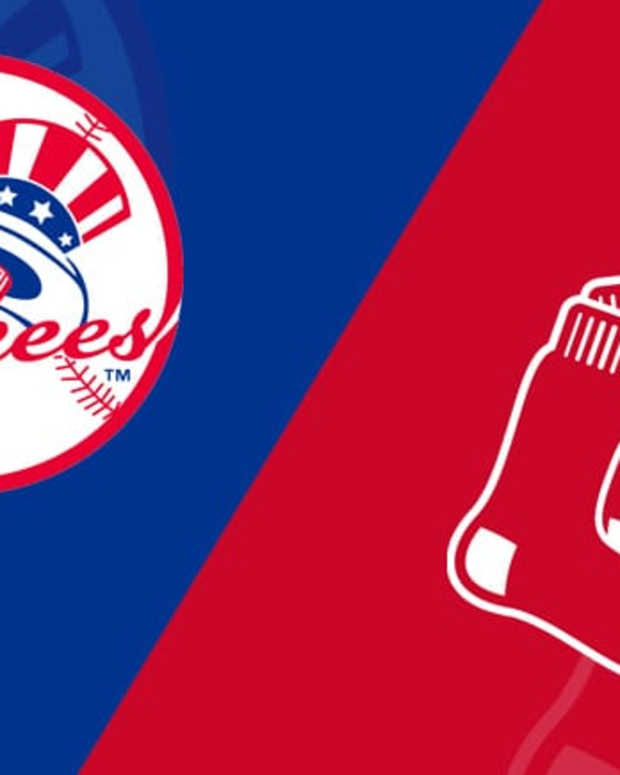Why Nasty Notes on the Cars of Accessible Parking Violators Is a Bad Idea
As a disability writer and advocate, I often come across articles during my research discussing how people react to finding nasty notes that accuse them of parking illegally in accessible parking spaces. I have concluded that these notes do more harm than good and are ineffective in curbing people from illegal parking in spots designated for people with disabilities.
Why We Need Accessible Parking Spots
The reason for accessible parking is to enable people with physical disabilities to access public places more efficiently and safely. People in wheelchairs can access ramps, and people who have trouble walking do not have to travel so far to the front door.
Being able to park in front also helps people with mobility issues be safe (can you imagine navigating a parking lot in a wheelchair?). Some people with cognitive issues may also need space so they can easily find their cars after their visits.
How People Become Accessible Parking Vigilantes
The Illegal use of accessible parking spaces is a global problem. Some people are just “popping into the store for a minute,” and others ignore signs for special parking for their own selfish reasons. Some assume that the drivers they suspect are illegally parked are uncaring, self-serving, and inconsiderate.
These people made it their mission to identify those who broke the rules, including those with legitimate accessible parking permits. Some post pictures of violators’ cars on “walls of shame” on social media. Others will become so angry that they vandalize the cars of assumed violators by smashing their mirrors, ruining their windshield wipers, or damaging their cars in other criminal and illegal ways.
Examples of Common Notes
The vigilantes may confront people directly that they feel are breaking the rules, but many leave anonymous notes. A review of articles about the nasty messages that vigilantes leave shows common threads I have summarized below.
- "I saw you were walking, and you seem to walk fine. Show some respect, and don't park here."
- "Did you forget your wheelchair?"
- “Are you in a hurry or just lazy?
- "Because of your inconsiderate parking, you took enough room for a whole zoo.”
- "I don’t like domineering, egotistical, or simple-minded drivers, and you are obviously one of these. F--- you."
- *I wish you an early transmission failure on the expressway.”
- “Change and become a decent person, will you?”
- “Saw that there is nothing wrong with you. Know that God is watching you.”
- “You inconsiderate b----, using a spot when neither you nor your child is disabled. You are setting a bad example for your child.”
- “Shame on you for using a space meant for people in wheelchairs.”
Why People Should Not Leave Nasty Notes
There are many reasons we shouldn't leave notes on someone's vehicle who we believe is improperly parked in an accessible spot.
It's a Waste of Time
Vigilantes assume that their rude notes will make parking violators feel shame and guilt when confronted and stop their illegal behavior. This is ineffective with selfish people who feel entitled to do whatever they want. The worst offenders are unlikely to be affected by nasty notes.
The Person Probably Has a Physical or Mental Disability
When people have permits, they get them because they have physical or mental disabilities or have a family member with mobility issues. However, many individuals have limited ideas of what physical disability looks like.
Physical disability has many forms that do not involve wheelchairs. The person may be an amputee with a prosthetic limb hidden under clothing. The person may have cancer or had surgery that impacts their ability to walk.
Some permits are issued to people with memory problems due to conditions such as brain cancer and may have difficulty remembering where they parked their cars.
It Might Be for the Passenger
Some non-disabled people have permits because they take family members shopping or to appointments. The non-disabled may return to their cars to get something or put heavy packages in the back while their disabled loved one is shopping. Vigilantes may spot them and mistake them for violators.
The people using these spaces may have conditions such as multiple sclerosis (MS), which may vary their ability to walk. One day, the person may be in a wheelchair. On another day, they may be on crutches. Yet another day, they may seem to be able to walk fine with a cane. These people feel proud of themselves because they can walk after a difficult surgery or on a rare good day only to find a nasty note on their windshield.
The Notes Are One-Sided and Hurtful
Notes are usually anonymous and one-sided. The person receiving the note has no chance to explain their circumstances if they wanted to do so. The recipient feels angry, frustrated, humiliated, and powerless.
No one has the right to belittle another person by calling them stupid, selfish, inconsiderate, or lazy. Name-calling and vulgar language are degrading and uncalled for. This behavior is abusive.
Some Alternatives to Nasty Notes
If we still want to address accessible parking infractions, there are many alternatives to mean notes that are kinder and more effective.
Explore Legal Options
In my city, each accessible parking spot has a sign that includes a hotline where people can call and report violators. The bottom of the sign has a warning that violators could face steep fines.
Violators think twice about using an accessible parking spot if they know they might have to face a hefty law enforcement officer and a huge fine. My city also has an enforcement team that patrols popular areas to spot cars without permits and possible permit use violations.
Many communities have similar systems in place to deal with parking violations. Some cities and states have commissions or committees to deal with these disability issues. Some organizations and disability advocates have set up pages on social media dedicated to discussing these issues and how to take action if needed.
Educate the Public
Media coverage of how nasty notes affect people who are genuinely physically disabled helps to educate the general public about the users of accessible parking. However, it is unfortunate that people with real mobility issues must be verbally abused, humiliated, embarrassed, and publicly shamed before light is shed on this issue.
Disability advocates have devised creative ways to raise public awareness about accessible parking. One European parking lot set up a hologram that is triggered when someone parked in a handicapped space. A mini-movie showed a disabled man in a wheelchair who explained and demonstrated why he needed the space.
A photo on European social media showed wheelchairs strategically lined up in several accessible parking spaces. Each unit had a sign conveying a message loosely translated as: “Back in just a minute.” Today’s technology provides many opportunities to use humor and other means to educate people about the proper use of accessible parking spaces.
Some disabled permit holders keep copies of documents or business cards that outline their conditions to show people who confront them. Some even put them on their dashboards to avoid getting nasty notes.
Advocate in Better Ways
After reviewing many articles about parking violations from far-flung places like the United Kingdom, New Zealand, and North America, I have concluded that nasty notes are harmful and do not work.
These messages will probably upset and anger innocent people with mobility or mental issues who already face many challenges. These notes also frustrate and enrage their caregivers and loved ones.
The disability community and its advocates need to continue educating people about how accessible parking spaces are used by those who need them. People who write nasty notes should explore more positive ways to ensure that disabled people can access the parking spaces they need.
References:
How Dare You Judge My Handicap Sticker, Fibromyalgia Community
Don’t judge appearances. People with invisible disabilities don’t look Disabled, Invisible Disabilities Association
U.K. Mom of a Child With a Disability Finds 'Hurtful' Note on Car, The Mighty
© 2018 Carola Finch
Comments
Dennis Thorgesen from Beatrice, Nebraska U.S. on August 26, 2018:
In years past I never had much of an issue with notes or belligerent people, when it came to handicapped spots. Now, I have no issue at all with handicapped spots. I just don't use them PERIOD. Here the state requires people to turn in the old sticker to get a new one. Mine shattered to pieces so I have none to give them.
Now I deal with belligerent people because I have to use two parking spots, so I can get back in my vehicle.
I can tell you from personal experience being way out in a parking lot with a wheelchair is dangerous. I was hit by a truck who couldn't see me, his mirrors were not set up to see down.
At that point in time I only had one wheelchair. The truck broke it, so after I got out of the hospital I was bed-fast until they replaced it. I had been able to stand to transfer, that I lost for a year. They never caught the driver.
Linda Lum from Washington State, USA on August 25, 2018:
Thank you for such a well-written article. It is true that many disabilities are not readily apparent. Some of us can walk, but not for a long distance (arthritis, or other mobility issues or breathing difficulties) and probably use a motorized cart upon getting into the store
Tim Truzy from U.S.A. on August 25, 2018:
Bravo, Carola!
Whether or not the person has a disability who parked in a parking place meant for those who have one, a step back is taken when people stoop to rude behavior to correct another bad behavior. Societies valuing the rights of people with disabilities often are those who value the rule of law. The suggestions you mentioned are valid and proactive versus reactive.
Great article with wonderful advice.
Much respect,
Sincerely,
Tim
Ronald E Franklin from Mechanicsburg, PA on August 24, 2018:
I'm glad you included samples of some of the notes people have left. They are pretty bad, and really reinforce your point.




















